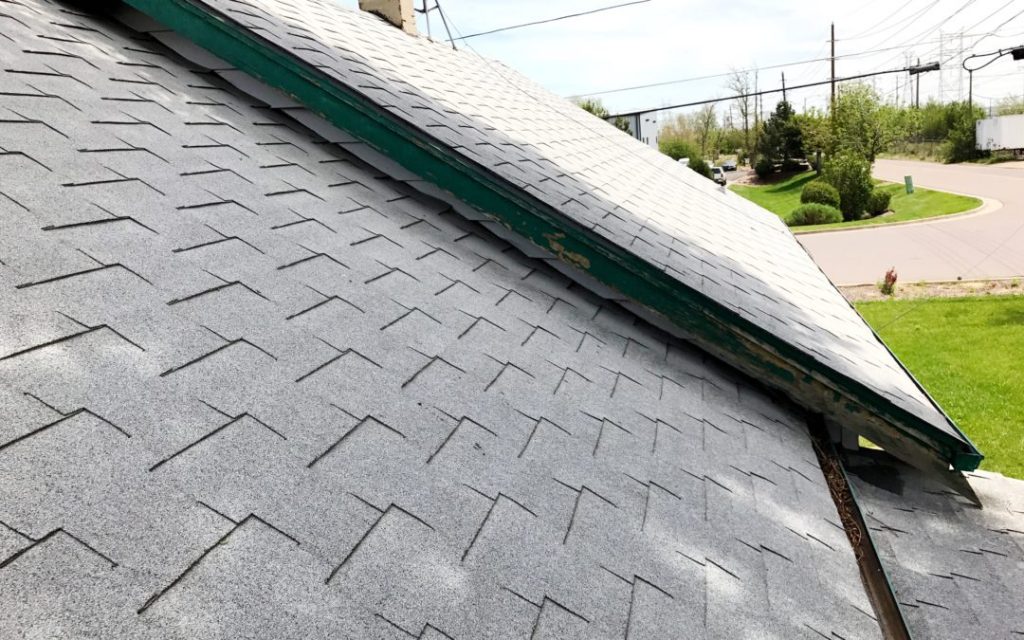What are T-Lock Shingles?
T-lock shingles are a type of shingle that was initially made popular in the 1930s and continued being used regularly on houses through much of the 1980s. The shingles bare a T-shaped design that allows them to interlock with each other. Made popular because of their ability to withstand heavy winds, T-lock shingles were the best option for roofing, especially in areas such as Denver, Westminster, and other surrounding communities where high winds are common. They were largely composed of asphalt, making them heavy and sturdy. However, over time, manufacturers cut back on the amount of asphalt used. This rendered the shingles weaker and less likely to withstand the torment of inclement weather. Unfortunately, manufacturing of T-lock shingles ceased altogether in 2004 as better options made them obsolete.
Problems With T-Lock Shingles
Aside from the weakening of the product created by the manufacturer, there are many other issues that now stem from having a T-lock roof. For example, repairing T-lock shingles isn’t much of an option, as replacement shingles simply aren’t available anymore. This can get quite costly for homeowners with these shingles, as T-lock roof repair very quickly becomes total roof replacement. Another issue that a homeowner may encounter can occur while attempting to sell his/her home. Insurance companies are less likely to insure a home with T-lock shingles. Consequently, buyers are less likely to purchase a house without the seller replacing the roof. As a buyer, one should ensure that the home being purchased either doesn’t have T-lock shingles or will have the roof replaced.
Insurance Companies and T-Lock Shingles
As previously mentioned, insurance companies are often reluctant or will refuse to insure homes with T-lock shingles. Unless a policy has grandfathered in the roof, this leaves the homeowner without many options. Insurance companies see T-lock shingles as a great risk. Even the most minuscule damage can result in needing to replace an entire roof due to lack of materials available. Another option that some insurance companies provide is ACV coverage on a roof. ACV stands for Actual Cash Value. In the case of T-lock shingles, the ACV won’t be much, as it will have drastically decreased over time. This not only forces the homeowner to move from T-lock roof repair to complete roof replacement, but it also leaves the homeowner paying for a majority of that replacement out-of-pocket.
Advice for Current and Potential Homeowners With T-Lock Shingles
If you are a homeowner that currently has T-lock shingles, reach out to your insurance agent today to confirm what type of coverage you have in place. A quick conversation now can prevent unpleasant surprises down the road. If you are looking to purchase a home with T-lock shingles, your best option may be to negotiate total roof replacement with the seller.



